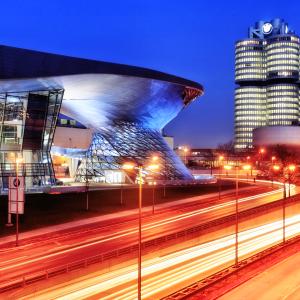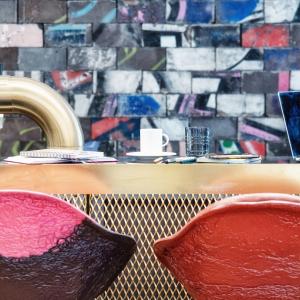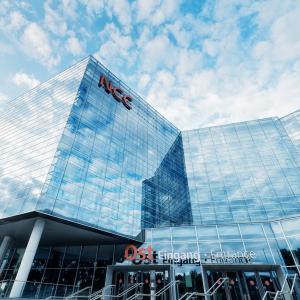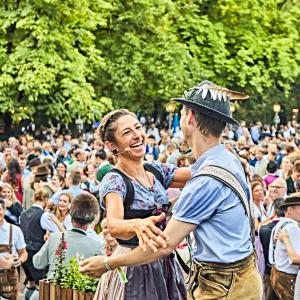Plankstetten Monastery has developed into an ecological paradise in recent years. At conferences and seminars, participants benefit from the historical flair, sustainably produced organic food and a tranquillity that lets thoughts fly.
The Benedictine Abbey of Plankstetten: Bavaria's green monastery
In April 2022 it was ready. The new accommodation, the St. Wunibald guesthouse. 30 bright and light-flooded guest rooms, built of wood, straw and clay. With floors and ceilings made of the monastery's own spruce wood. With furniture made in the abbey's carpentry workshop. "We didn't want to put up just any building," says Frater Andreas Schmidt, the monastery's cellar and building supervisor, "but to build something sustainable, which is energy-efficient and has a future."
Spiritual centre in the Altmühltal
The largest purely straw-insulated building in southern Germany also fits in well with the philosophy of Plankstetten Monastery. In the spiritual centre of the Altmühltal Nature Park, the monks have been working intensively for almost three decades to bring not only life but also economic activity into harmony with God's creation. The Benedictine abbey high above the western bank of the Main-Danube Canal is therefore often called "Bavaria's green monastery" because of its completely ecological orientation.
Meetings in a historical ambience
This retreat is the perfect place for concentrated and at the same time relaxed meetings and work. Several rooms are available for this purpose, some of them in a historical ambience, with space for up to 230 people. In addition to the latest media technology, the monastery has a high-performance wifi in all rooms. The ideal environment for profitable workshops and seminars.
Sustainable management for almost 30 years
Ora et labora: For almost 900 years, the Benedictines have been praying and working in the monastery founded in 1129 in the western part of the Upper Palatinate. The abbey experienced a major break in 1994 when the monks made a trend-setting decision and converted to 100 percent organic farming, i.e. certified organic-biological management, as a pioneer and trailblazer in environmental protection, awareness and sustainability. Since then, for example, Frater Richard Schmidt and his team have been managing 350 hectares of agriculture and forestry on the Staudenhof monastery estate, where an ecological paradise has been created thanks to the renunciation of synthetic fertilisers and chemical pesticides. And a protected habitat for bees, bumblebees and butterflies.
Fresh organic bread from the monastery bakery for breakfast
A wide variety of plants and (ancient) grains grow in the fields here in a diverse and varied crop rotation. They serve as the basis for processing in the monastery's own operations, for example in the monastery bakery, where Frater Bonifatius Holzmann and his staff bake the sunflower, pumpkin seed and wholemeal spelt breads, the rolls and the pretzels every day from early in the morning.
The kitchen uses the monastery's own products
Everything is organic, just like in the kitchen, the heart of the Plankstetten self-sufficiency concept. Here, chef Christoph Öttl relies not only on fruit, grain and vegetables from the fields and beds of the monastery nursery, but also on meat from the monastery's own farm. There, cows and calves, goats and pigs lead a peaceful and happy life in green surroundings with healthy food and plenty of outdoor space.
Meeting in the green
Those who want to see the green guiding principle in Plankstetten for themselves, those who are looking for time out for body, mind and soul and want to regain strength for everyday life, can stay in the monastery's guest houses and, if they wish, book courses from a wide range of areas, on the topics of spirituality and health, creativity and life. With its peaceful surroundings, the abbey is the perfect place for conferences, seminars and meetings.
A tip for hiking: The Benedictus Trail.
Day guests are also welcome
In the abbey tavern and its shady beer garden, the abbey's own organic specialities are also available fresh to the table for day trippers.
If you would like to experience a wonderful tour along the Main-Danube Canal with a view over the Sulz Valley, we recommend the Benedictus Trail from Plankstetten to Berching and back, which is about 14 kilometres long. Nine display boards tell about the life of St. Benedict (480-547), as a stimulus to meditation and reflection on one's own life and faith.
Monastery and cuisine, faith and pleasure. In every respect, the right place for a healthy retreat and an exceptional ambience for events or business functions.
For more information about Plankstetten Monastery, click here.



